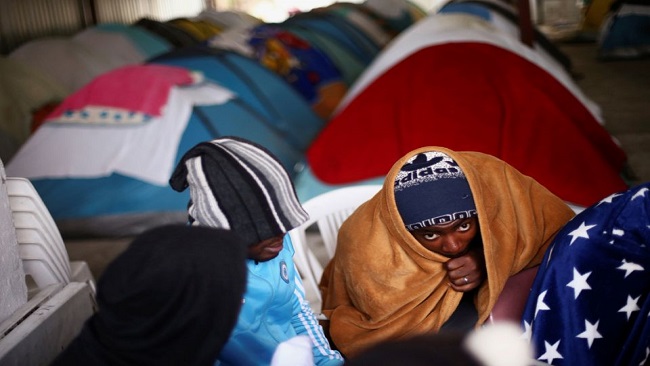Southern Cameroons Crisis: US-Mexico border sees surge in Ambazonia migrants, who face limited options
While most migrants apprehended at the U.S. border are from Central American countries, a growing number of Africans particularly from Southern Cameroons are making their way to the United States, via the same routes traditionally used by Central Americans and Mexicans. Fleeing ethnic cleansing and political volatility in their respective countries, the migrants are escaping Central African nations like La Republique du Cameroun, the Democratic Republic of Congo and Angola.
The surge in numbers of this new population surprised border patrol agents who are more accustomed to Spanish-speaking migrants. In June, border patrol apprehended a record number of African refugees and immigrants from 19 countries. According to the Department of Homeland Security, a majority of apprehensions happened along the Del Rio sector in Texas, consisting mostly of family units and single adults.
“The introduction of this new population places additional burdens on processing stations, to include language and cultural differences,” Del Rio Sector Chief Patrol Agent Raul Ortiz, said in a statement. “Our agents continue to meet each new challenge as the ongoing humanitarian crisis evolves.”
The presence of the extracontinental population — people from a non-Western Hemispheric region transiting through Latin America — at the border is not new, say experts. Historically, there has been a trickle of migrants from other hemispheres traveling through Mexico to reach the U.S. southern border.
“But we have seen that number more than triple, when you compare last year to this year,” said Jessica Bolter, associate policy analyst at Migration Policy Institute, a Washington-based non-partisan think tank that conducts research and analysis on the movement of people across the globe.
In Cameroon, conflict has been simmering for decades between the French-speaking majority and the Anglophones in the South West and North West. It has finally boiled over, resulting in the deaths of thousands and reports of torture and rape, prompting many to flee. Among those seeking asylum from Africa are LGBTQI people fearing persecution and student activists/organizers fleeing government retribution from countries like Congo and Cameroon.
Source: National Catholic Reporter with additional editing from Camcordnews




